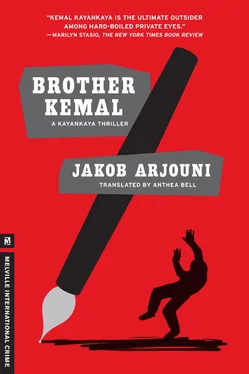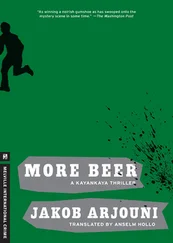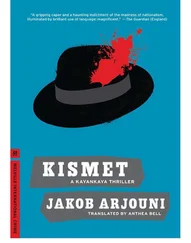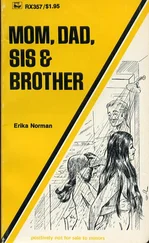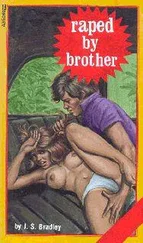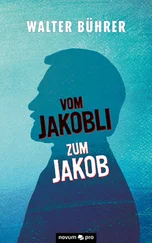Jakob Arjouni - Brother Kemal
Здесь есть возможность читать онлайн «Jakob Arjouni - Brother Kemal» весь текст электронной книги совершенно бесплатно (целиком полную версию без сокращений). В некоторых случаях можно слушать аудио, скачать через торрент в формате fb2 и присутствует краткое содержание. Жанр: Криминальный детектив, на английском языке. Описание произведения, (предисловие) а так же отзывы посетителей доступны на портале библиотеки ЛибКат.
- Название:Brother Kemal
- Автор:
- Жанр:
- Год:неизвестен
- ISBN:нет данных
- Рейтинг книги:5 / 5. Голосов: 1
-
Избранное:Добавить в избранное
- Отзывы:
-
Ваша оценка:
- 100
- 1
- 2
- 3
- 4
- 5
Brother Kemal: краткое содержание, описание и аннотация
Предлагаем к чтению аннотацию, описание, краткое содержание или предисловие (зависит от того, что написал сам автор книги «Brother Kemal»). Если вы не нашли необходимую информацию о книге — напишите в комментариях, мы постараемся отыскать её.
Brother Kemal — читать онлайн бесплатно полную книгу (весь текст) целиком
Ниже представлен текст книги, разбитый по страницам. Система сохранения места последней прочитанной страницы, позволяет с удобством читать онлайн бесплатно книгу «Brother Kemal», без необходимости каждый раз заново искать на чём Вы остановились. Поставьте закладку, и сможете в любой момент перейти на страницу, на которой закончили чтение.
Интервал:
Закладка:
She nodded, sniffing, and then she said, ‘So that’s your picture of me, is it? Shopping and the gym, hmm?’
I looked at her for a moment. ‘Don’t worry about how I see you. Everything is fine there.’
We shook hands, and the next moment I was in the hall. I wiped the sweat from my brow with my sleeve.
The gentleman’s racing bike that must have cost five or six thousand euros was leaning against the wall. I’d come to know a few things about bikes since I gave up smoking four years ago. Every time I felt a craving for nicotine that I could hardly withstand I got on my bike and fought the just-half-a-cigarette devil by riding uphill and downhill between Bad Soden and Bad Nauheim, whatever the time of day or night.
Perhaps the racing bike came from financially better times. Or it was one of the things that were meant to give Edgar Hasselbaink the idea that Frankfurt could be fun, and the family scrimped and saved to afford it. Or Valerie de Chavannes, a credit to her financial wizard of a father, had put on a performance for me aiming, just on principle, to lower costs in any situation, however inappropriate.
Just before I reached the hefty, iron-clad front door, a forbidding sight from both outside and inside, the housekeeper came up the cellar steps with a basket of laundry under her arm.
She stopped in surprise. ‘You’re still here?’
‘Yes. Thanks for the tea. Next time I’d like to try your fish soup, on the reverse principle …’
She gave me a puzzled look.
‘Just one question: how long have you been working for the de Chavannes family?’
She didn’t like my asking, and if I was not much mistaken she didn’t like me either.
‘Over twenty years. Why?’
‘Only wondering, sheer curiosity. Goodbye, then. Have a nice day.’
She murmured something that I couldn’t make out. Was she going to report my visit to Georges and Bernadette de Chavannes? There was another of them here today …
When the door latched behind me, I stood in the front garden for a moment breathing in the clear autumn air. Apart from an elderly couple slowly approaching down the pavement, Zeppelinallee was deserted. Not a car driving along, no noisy children, no clinking of crockery, no lawn mowers. You heard the sounds of the city very quietly, as if from far away, although you were almost in its centre.
Both the man and the woman wore Hunter green felt hats, the woman had a fur round her neck, the man carried a walking stick with a gleaming golden knob shaped like an animal’s head. The click-clack of the walking stick sounded through the silence of the diplomatic quarter.
Let’s try it, I thought, and waved to the couple, smiling. ‘Good morning!’
As they went on they looked at me as if I were a talking tree or something, and as if talking trees and indeed anything like them were extremely crude.
I took my bicycle, pushed it out of the front garden and rode away in the direction of the Bockenheimer Landstrasse. As I passed the elderly couple I called out, ‘You poorly educated pigs!’ And once again they looked, without moving a muscle. A talking tree on a bicycle — what on earth is the world coming to?
I pushed down on the pedals, with the mild October sun in my face, convinced that I had an easy, pleasant job ahead of me. At least, so long as I kept my distance from my client. Valerie de Chavannes was an attractive woman, no denying it, and if I was not much mistaken she wouldn’t turn down a little comforting if it was offered in the right way. But there were plenty of attractive women around. I was living with one of them. And anyway, Valerie de Chavannes’s I-only-ever-think-of-one-thing look struck me as coinciding exactly with the range of possible feelings about her — and who wanted the hell bit at my age? I was in my early fifties, I did my work, I paid my bills, I had made my way. I’d managed to stop smoking, all I drank were two or three beers in the evening or my share of a couple of bottles of wine with friends, and Deborah and I were planning our future. This morning I had stepped out of my front door generally pleased with life, and I had mounted my bike with an apple in my hand. Not quite heaven, maybe, but not so far from it.
And then I went and did it all the same. I held the fingertips that had just touched Valerie de Chavannes’s armpits close to my nose, and caught a faintly lavender-scented smell of sweat, and for a moment I felt as if the October sun were burning down on my head like its sister in August.
Chapter 2
My office was on the second floor of a run-down sixties apartment building — or perhaps it had never run very far up — at the beginning of Gutleutstrasse near Frankfurt Central Station. Pinkish brown plaster was crumbling away from the façade, the bare brick wall showed through in many places, a number of windows had sheets hung over them, others had furniture blocking them, chains of Christmas lights winked on and off all year round on the third floor and on the fourth floor a Frankfurt Hooligan decal covered one pane. On the ground floor there was a second-hand clothes shop where you could buy used moon boots, polyester shirts and cracked leather belts. My friend Slibulsky called it the Third Armpit, on account of the smell that wafted out of the shop when the door was open. The front door at the entrance to the building had once been ribbed glass, until a drunk kicked it in three years ago and the owner had replaced the glass with a wooden board.
The stairwell, which was painted greyish yellow, smelled of cats and cleaning fluid. If you found the half-broken-off light switch and pressed it, a candle-shaped naked energy-saving bulb gave just enough dim light to show you the stairs. Some joker kept smearing some kind of sticky substance on the banisters: jam, honey, UHU glue. I was sure the perpetrator was the twelve-year-old son of a single father on the fourth floor, but I couldn’t prove it. I once cornered him on the subject, and his answer had been, ‘Something sticky? Are you sure it was on the bannisters? Did you wash your hands first?’ Little bastard.
A Croatian Mafia, trying to keep me from investigating their shady business, had blown up my previous office thirteen years before. The two-room apartment in Gutleutstrasse had been a quick, cheap, and — I thought at the time — temporary substitute. My fears that, with such an address, and the state of the building, the only clients I’d get would be people with a list of previous convictions or bad drug problems proved to be exaggerated. It’s true that with the passing trade that made its way up the gloomy stairs to the second floor merely because of the nameplate saying Kemal Kayankaya — Investigations and Personal Protection , I could hardly have earned the rent in those first years. But I had a pretty good reputation as a detective in the city, the word-of-mouth publicity worked well, and business was good. My wish for a classier office space faded. I got used to the area, the chestnut tree outside the window and the little Café Rosig on the corner, until the success of the Internet and computer technology made the location of my office superfluous. My clients got in touch by email or phone, my paper files would fit into a shoe box and I held business meetings in the Café Rosig. I could have given my private apartment as my business address. But then Deborah found an apartment in the West End district of the city — four rooms, kitchen and bathroom — and asked if I’d like to move in with her. We’d been at first an occasional, then more and more of an established, couple for more than six years, and I was happy to accept the offer. That meant I needed an office away from my home. If anyone else had designs on me with explosives or anything else, I didn’t want Deborah to be affected.
Читать дальшеИнтервал:
Закладка:
Похожие книги на «Brother Kemal»
Представляем Вашему вниманию похожие книги на «Brother Kemal» списком для выбора. Мы отобрали схожую по названию и смыслу литературу в надежде предоставить читателям больше вариантов отыскать новые, интересные, ещё непрочитанные произведения.
Обсуждение, отзывы о книге «Brother Kemal» и просто собственные мнения читателей. Оставьте ваши комментарии, напишите, что Вы думаете о произведении, его смысле или главных героях. Укажите что конкретно понравилось, а что нет, и почему Вы так считаете.
